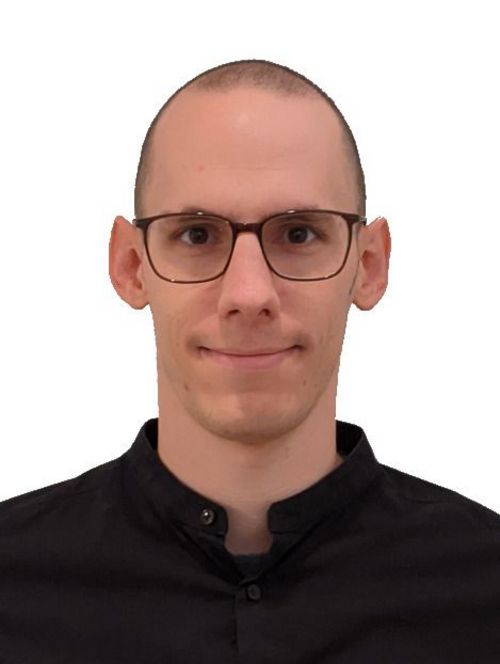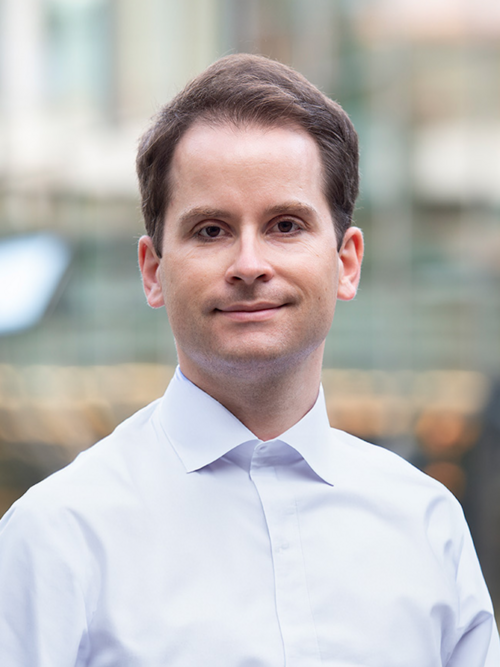Austausch über die eigene Disziplin hinaus
Die engverwobenen Bereiche Künstliche Intelligenz und Medizin leben vom Austausch über die eigene Disziplin hinaus, vom Diskurs und der Zusammenarbeit der unterschiedlichen Fachbereiche. Diesen Austausch wollen wir mit dieser Veranstaltung anregen und anstoßen. Annäherungen an Fragestellungen, aktuelle Entwicklungen und Herausforderungen dieses interdisziplinären Themenbereichs sollen im Zentrum stehen und für Gesprächsstoff sorgen.
Den Abend eröffnen wird Erich Kobler (JKU Linz) mit der Keynote „Gadolinium dose reduction in brain MRI and model-based deep learning for inverse problems". Den zweiten Teil der Keynote übernimmt Philipp Vollmuth (Universität Bonn) mit einem Vortrag zu "Clinical Translation of AI in Radiology - Opportunities and Challenges".
Im Anschluss ist ein Austausch in gemütlicher Atmosphäre geplant.
Themenabend: AI in Medicine
WANN
Mittwoch, 18.09.2024
17:30 - 19:30 Uhr
Im Anschluss gemütlicher Austausch bei Getränk & Fingerfood.
WAS
Keynote, Austausch, Netzwerken
Keynote
Gadolinium dose reduction in brain MRI and model-based deep learning for inverse problems
Recent deep-learning-based approaches for reducing gadolinium-based contrast agents (GBCAs) in MRI face challenges in accurately predicting contrast enhancement and synthesizing realistic images. In this presentation, we introduce novel deep-learning methods, outperforming existing techniques across different scanners, field strengths, and contrast agents. In the second part, we combine variational methods and highly expressive deep-learning-based image priors by a mean-field optimal control problem. This combination allows for rigorous mathematical analysis including stability estimates and simultaneously leads to state-of-the-art results on various image restoration and reconstruction problems.
Erich Kobler
Erich Kobler, received his BSc (2009-2013) and his MSc (2013-2015) in Information and Computer Engineering (Telematik) as well as his PhD (2016-2020) in computer science from Graz University of Technology.
After a PostDoc position at Graz University of Technology and Linz University of Technology, he moved to the University Hospital Bonn, where he was co-leading the imaging lab of the Department of Neuroradiology. His research interests include machine learning, computer vision, inverse problems, and medical imaging.

Clinical Translation of AI in Radiology - Opportunities and Challenges
Integrating AI in radiology opens up significant opportunities to improve diagnostic accuracy and streamline clinical workflow. The session will explore these opportunities, concentrating on advances in AI-driven image pre-processing, image analysis, and decision support, while also addressing the challenges to ensure model generalizability, stringent clinical validation, and real-world applications. Participants will learn more about state-of-the-art AI in radiology, focusing on neuroradiology as well as clinical applications and the critical steps required to successfully implement AI in a real-world setting.
Philipp Vollmuth
Philipp Vollmuth is a physician-scientist and full professor (endowed by the Else-Kröner Fresenius Foundation) for AI in Medical Imaging at the University of Bonn. He leads the division for Computational Radiology & Clinical AI at the University Hospital Bonn with a secondary appointment at the Division for Medical Image Computing at the German Cancer Research Center (DKFZ) Heidelberg. His research focuses on building and clinically translating state-of-the-art AI and big data analytics in the field of radiology. He is significantly involved in several national and international research projects related to AI in radiology. His scientific work has been published in leading journals (including Lancet Oncology, Lancet Digital Health, and Nature Communications) and has received numerous research awards.

 Zur JKU Startseite
Zur JKU Startseite


